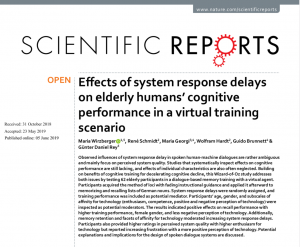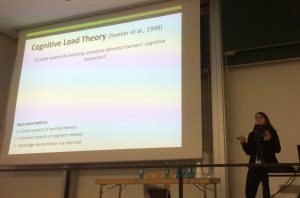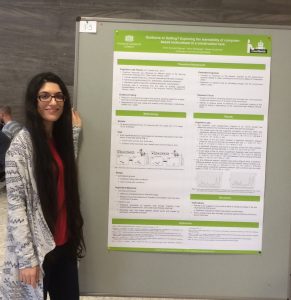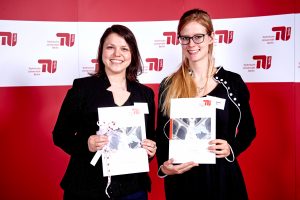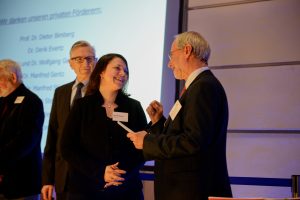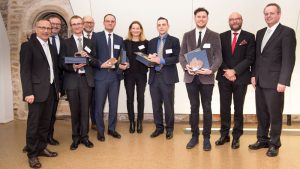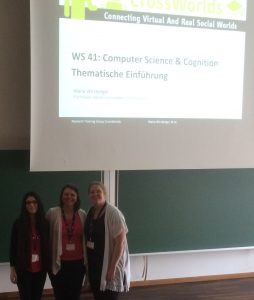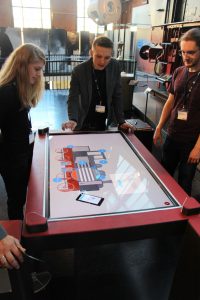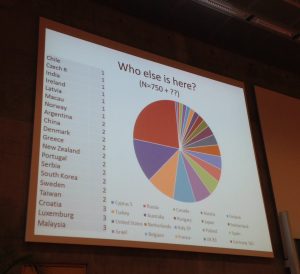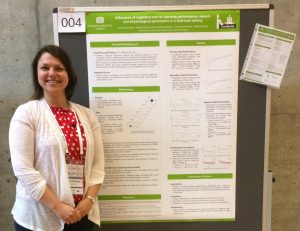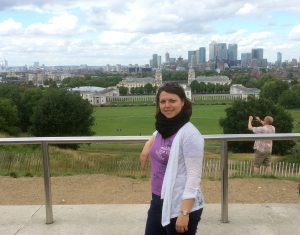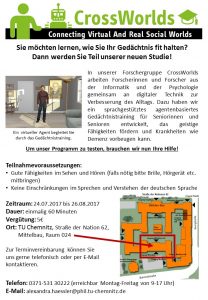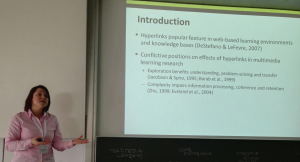
Maria Wirzberger introducing her research
Not far away from Chemnitz, the 59th conference of experimental psychologists (TeaP) took place from March 26th to 29th in the beautiful city of Dresden. Apart from a broad variety of talks and symposia from the fields of basic and applied experimental psychology, the conference hosted three exciting and insightful keynotes from the internationally renowned researchers Klaus Oberauer, Tania Singer and Patrick Haggard.
In the afternoon of the first conference day, CrossWorlds researcher Maria Wirzberger participated in a symposium on cognition and emotion in human-machine interaction, organized by colleagues from the chair of cognitive psychology and cognitive ergonomics at TU Berlin. In the well-attended session, she introduced a study on interrupting features of hyperlinks in multimedia learning. The session also featured a talk from her colleague Sascha Schneider from the affiliated chair of E-Learning and New Media (TU Chemnitz) about the moderating role of arousal on the seductive detail effect. Both researchers received beneficial feedback on their work in the vivid discussions afterwards.
At the final conference day, CrossWorlds researcher Jan-Philipp Stein, accompanied by master’s student Xiaomeng Lu, gave a talk on “Connecting stereotypes among German and Chinese students to their perceptions of native speaking media”. Their work was well-received by the large audience and inspired a fruitful discussion on the political implications of this fascinating topic of social psychology.
In addition, the final conference day covered a talk session on teaching and instruction, chaired by CrossWorlds member Maria Wirzberger, including further talks from her colleagues of the chair of E-Learning and New Media: Maik Beege introduced his research on the influence of age coherence between pedagogical agents and verbal information on learning and cognitive load and Maria Mikheeva presented a study on the politeness effect in online learning materials for higher mathematics.
Taken together, the days spent in Dresden proved of high value for our researchers, due to various opportunities to strengthen existing networks, establish new contacts, and gain insights into fascinating new developments within the field of cognition research!
